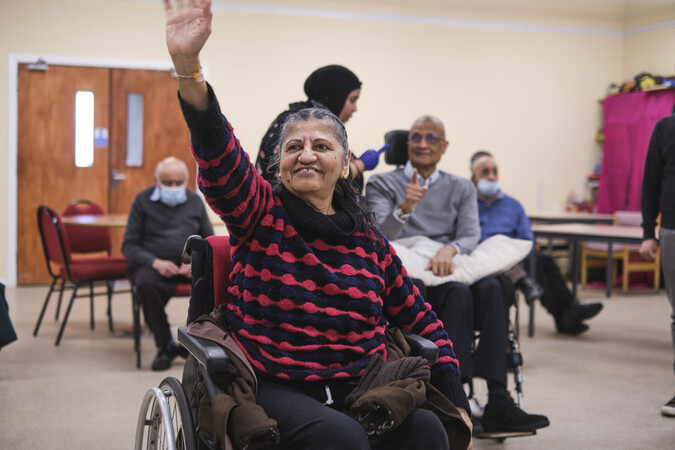By Dr Denise Tanner
Associate Professor of Social Work, Department of Social Work and Social Care
“‘Oh, you take kids away from families.’ That’s all they think social workers do. In my entire career, I do not recall one time I’ve seen a positive social work story”.
Social Work, Team manager
If people think about social workers at all, it’s usually about their role with children and is influenced by negative press. Our research uncovered the way social workers enhance older people’s lives. This matters because a lack of knowledge, fear, or suspicion of social workers can deter older people from seeking much-needed support. And a view that social work with older people is less vital can stop social workers from choosing this increasingly important area of work.
The Social Work with Older People (SWOP) research project observed ten social workers working with older people in two areas of England over a six-month period. We interviewed them, some of the older people and carers they supported, and spoke to other professionals. Our research shines a light on the previously invisible impact social workers have.
Anyone could need a social worker in older age due to illness or frailty. We saw how social workers supported older people to receive dignified care, reassured and advised them and their families about care and funding, and upheld rights and wishes when someone could no longer make a decision for themselves.
“From what I can see, they get a lot of bad write ups, social workers seem to do, and I think that’s grossly unfair.”
Older person
Here we highlight three hopeful stories about social work with older people:
1. Social workers improve older people’s lives.
We saw how social workers use expert communication skills to build supportive relationships with older people and their families at times of crisis, change, conflict and uncertainty. They discover what is needed and mobilise the right resources, acting as enablers and guides.
“She treated Mum as an equal, as if she hasn’t got dementia. She never talked down to her.”
Daughter talking about a social worker
Social workers are trained to at least degree level. They use their specialist knowledge to understand and address complex social, health, financial and practical challenges that older people face. They apply the law to navigate complicated systems and processes. They lead inquiries into how to safeguard someone from self-neglect or financial abuse.
Social workers are committed to upholding people’s voices and rights and working in partnership with them.
“She was quite open that it was our decision… but she really gave us all the reasons… She’s sorted everything out and sorted all the finance and everything for us… we’ve had a really good outcome”
Daughter of an older man
This means that… social workers need to be on hand to offer support when their specific knowledge and skills are most needed. And older people need to know that social work is to be welcomed, not feared.
2. Social workers bring together the support older people need and save scarce NHS resources.
People’s physical health is affected by their situation in life. The NHS plays a vital role in keeping people going physically, but it is social care that offers the potential of a life of dignity and control. Social workers work with healthcare providers and other colleagues to arrange support so older people can remain at home for longer or return home from hospital safely. They reassure and support family carers. They ease the transition to a new home if needed. They advocate for people’s rights and advise other professionals when they might, through excessive concern with risk, propel older people into a care home when this is not appropriate.
“She (the social worker) is very skilled at putting people at ease and talking to people, and that’s patients and next of kin. And very clear in her explanations. She’s very upfront as to what we’re trying to do and… she always advocates, even if it might put her at odds… I mean, her knowledge is second to none really.”
Nurse assessor in hospital
This means that … social workers need to be present where services are working with older people with complex needs, including in primary care and hospital settings.
3. Older people’s social workers love their work.
Social workers value the opportunity their role gives to build relationships with older people, hear about rich lives lived, and make a positive difference. However, they face many barriers to doing a good job and the work has a big emotional impact. Barriers include high workloads, lack of staff and care services, organisational boundaries and administrative demands that take away from time spent with older people. Social workers are motivated and energised by good peer support, supervision, and management.
“I love the privilege of being able to work with people. Yeah, it is a huge privilege, and I love it.”
Social worker with older people
This means … we need to reduce the barriers to good social work practice and boost the enablers to make sure that social workers choose to work in this interesting, and highly rewarding area of social work.
- Find out more about Dr Denise Tanner
- Back to Social Sciences Birmingham
The views and opinions expressed in this article are those of the author and do not necessarily reflect the official policy or position of the University of Birmingham.

